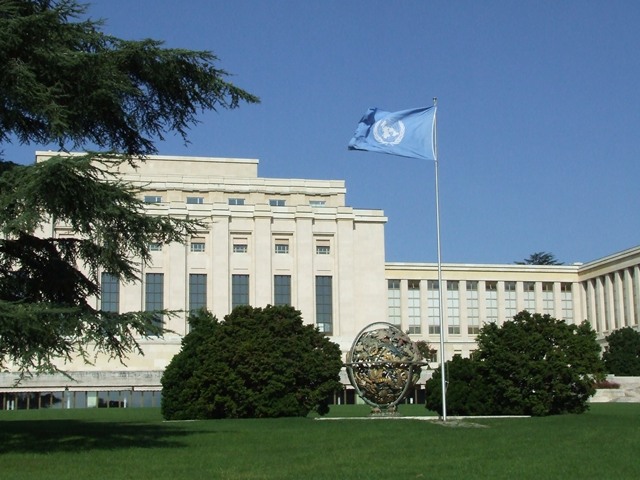
Road Safety Envoy Backs Initiatives in Mauritius, Eswatini
The United Nations Secretary-General’s Special Envoy for Road Safety, Jean Todt, will visit Mauritius, Madagascar and Eswatini from 8 to 16 April 2025 to support global and national authorities’ road safety initiatives. In particular, the Special Envoy will launch locally the UN Global Campaign for Road Safety #MakeASafetyStatement, developed in partnership with JCDecaux. He will also join the 2025 Kofi Annan Road Safety Award to be held in Eswatini on 14-15 April.
The Special Envoy will meet members of the Government as well as representatives of the private and public sectors two months after the Declaration of Marrakesh where Member states further committed to accelerate efforts for achieving the Decade of Action for Road Safety’s goal of halving the number of the victims on the road by 2030.
The Silent pandemic on the road
The Special Envoy Jean Todt qualified road crashes as “The Silent Pandemic on the Road”. Indeed, every year, the staggering toll of road-related fatalities globally claims the lives of 1.19 million people, leaving 50 million others with severe injuries. Furthermore, road crashes are the leading cause of death for children and young adults aged 5-29 years.
Road crashes are disproportionately high in Africa compared to other regions of the world. The continent loses annually over 300,000 people through road crashes, even though its countries are witnessing the lowest levels of motorization in the world. Africa has a traffic fatality rate of 19.5 deaths per 100,000 people compared to 16 deaths per 100,000 in Southeast Asia, and 6.5 deaths per 100,000 in Europe.
“Africa is the continent proportionately most affected by road crashes. Knowing that these affect the youngest first, beyond the human tragedy this is an economic devastation sacrificing or invalidating for life the active force of a country. While the vaccine to avoid this carnage on the road exists, I urgently call on everyone to use it.” — United Nations Secretary-General’s Special Envoy for Road Safety, Jean Todt.
Thirty-eight percent of all African road traffic fatalities occur among pedestrians while 43 percent occur among car occupants. Motorized 2-3 wheelers and cyclists account for 7 percent and 5 percent of Africa’s traffic deaths respectively. A significant proportion of road fatalities on the continent occur in urban areas. Furthermore, the ongoing improvement of the quality and coverage of Africa’s roads will increase crashes on the continent if it is not accompanied by appropriate road safety measures.
Towards enhanced road safety in Mauritius
The fatality rate in Mauritius is 10/100,000 inhabitants (WHO 2023). There is an increase in motorcycles crashes. Under the leadership of the Minister of Land Transport of Mauritius, Hon. Osman Mahomed, a series of 16 measures aiming to improve road safety are being envisaged in the country. Among these: re-introduction of the “Penalty Point System”; introduction of the Graduated Licensing System; helmets for sale for motorcycles of or exceeding a capacity of 50 cubic centimeters should be in accordance with set standards and be made mandatory; road safety education in schools; stringent enforcement by the Police or ERS -Transport Squad with regular crack down operations at night.
Men are the most affected, representing 89% of fatalities.Women are mostly victims as pedestrians (64%) and passengers (21%), while men die on motorcycles (35%) and as pedestrians (28%), with an average of 9% each as drivers, cyclists, passengers and passengers on the back (2023 figures, Le Mauricien).
“The current Government will implement the necessary projects and initiatives to make our roads safer as we expand and modernize our land transport” highlights Minister of Land Transport Osman Mahomed.
Safer roads for economic growth in Madagascar
The fatality rate in Madagascar is 22.5/100,000 inhabitants (WHO 2023). Poor maintenance and erosion have rendered a significant portion of the road network (mostly unpaved) unsafe (UNEP 2024). Madagascar has one of the least developed road networks in the world. Transport has been widely recognized as a barrier to the provision of and access to health services in rural areas. Madagascar’s overall poor infrastructure is negatively affecting its economic growth and development opportunities.
While 70 percent of primary roads are in good condition, about two-thirds of secondary and tertiary roads are estimated to be in poor condition (WB, 2018). There is a high risk of motorcycle crashes in Madagascar, due to the poor state of roads and the non-use of helmets responding to UN safety standards. When we know that quality helmets reduce the risk of death by over six times and reduce the risk of brain injury by up to 74% (WHO 2021), it is urgent to act to stop the carnage on the road.
“By 2030, Madagascar aims to halve road deaths and injuries, in line with Sustainable Development Goal 3.6. This ambition falls into a dynamic of profound transformation: build infrastructures respectful of international standards, promote the introduction of new safer vehicles, strengthen technical inspection procedures, and integrate road safety into national education programs. We are also determined to provide training for those involved in the sector, and to ensure more humane and effective assistance of accident victims” highlights Valéry Manambahoaka RAMONJAVELO – Ministry of Transport and Meteorology.
Toward vision zero victim on the road In Eswatini
The fatality rate in Eswatini is 25/100,000 inhabitants (WHO 2021), affecting first children as well as the most productive age group (15-49 years old). Road crashes impose huge constraints on Eswatini ‘s economy, up to 10.8% of GDP (Eswatini National Road Safety Strategy 2023-2030). The Kingdom of Eswatini ratified in 2020 the African Union Road Safety Charter with the vision zero fatal and serious injury on Eswatini’s roads by 2063. Drink-driving, speeding and overloading, in this order, are the major causes of accidents on the country’s roads. (Times of Swaziland).
The Kingdom of Eswatini is making efforts to substantially enhance road safety, with an ongoing road safety legislative reform. The Kingdom has also established a Center of Excellence in Road Safety. In addition, Eswatini is fostering South-South cooperation with other African countries and partners on transport and road safety.
The Kofi Annan Road Safety Award
The Kofi Annan Road Safety Award, organized by the Kofi Annan Foundation, in collaboration with UNECA and the Ministry of Transport of Eswatini, will be in the form of certificates of recognition delivered to governments, the private sector or civil society organizations that have made outstanding contributions to road safety in Africa.
This year the following countries will receive awards: Cameroon (Innovation & Digitalization), Ethiopia (Public Transportation/Modal shift), Kenya (Safer Vehicles), Nigeria (Road Safety management), Senegal (Road safety financing), South-Africa (post-crash care).
https://unece.org/media/press/401161


